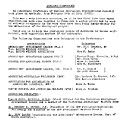Timeline
1951
Strikes on Darwin reserves
Aboriginal inhabitants of Bagot and Berrimah Reserves march on Darwin to protest racially discriminatory laws and wages lower than those of white workers. The protest and publicity it received leads to the formation of the Council for Aboriginal Rights in Melbourne.
Jack McGinness speech to Trade Union Congress, 1951
Cited in Joe McGinness, Son of Alyandabu: My Fight for Aboriginal Rights, UQP, 1991, pp 61-64
Download Jack McGinness speech to Trade Union Congress, 1951 [PDF 63kb]
International: Refugee rights affirmed
The Convention on the Status of Refugees (UN) is adopted.
1952
International: Anti-apartheid campaign
The African National Congress and the South African Indian Congress respond to apartheid with a campaign of civil disobedience called the 'Campaign of Defiance Against Unjust Laws'. 8500 protestors are arrested.
1954
Aborigines hidden from Queen
Queen Elizabeth II visits Australia to welcoming crowds. Aboriginal camp sites in country towns are shielded from her view.
International: School desegregation
On May 17, in Brown vs Board of Education, the United States Supreme Court unanimously agrees that segregation in public schools is unconstitutional.
1955
International: Bus desegregation
Rosa Parks is arrested for refusing to give up her seat for a white passenger on a bus in Alabama, USA. The black community launches a bus boycott which lasts more than a year, and buses are finally desegregated in 1956.
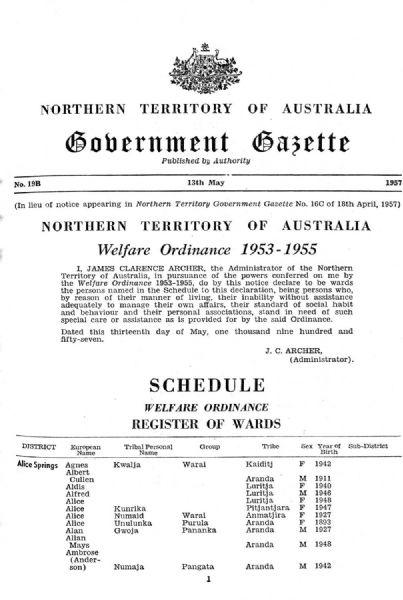
This register was commonly referred to as 'The Stud Book' by its critics.
Source: Northern Territory, Government Gazette, 13 May 1957
Petition campaign begins
A petition drafted by Jessie Street for a referendum to alter two clauses of the Constitution is launched by the Aboriginal-Australian Fellowship at the Sydney Town Hall. This begins a decade long campaign taken up the following year by the Federal Council for Aboriginal Advancement.
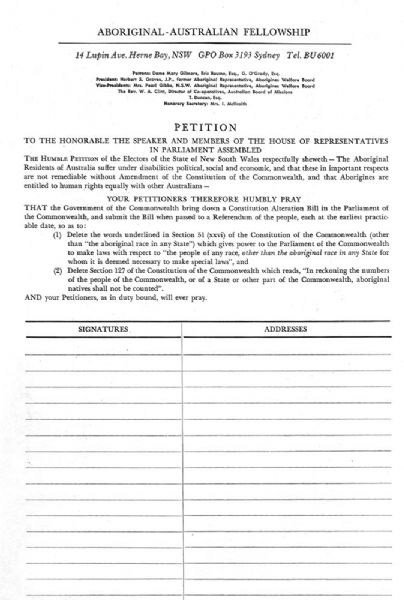
Source: Women's Intgernational League for Peace and Freedom, MS 9377, State Library of Victoria
Aboriginal starvation exposed
Aboriginal people of the Warburton-Laverton Ranges area are reported to be starving. These reports cause great public controversy and raise questions of federal and state responsibility for the welfare of Indigenous people.
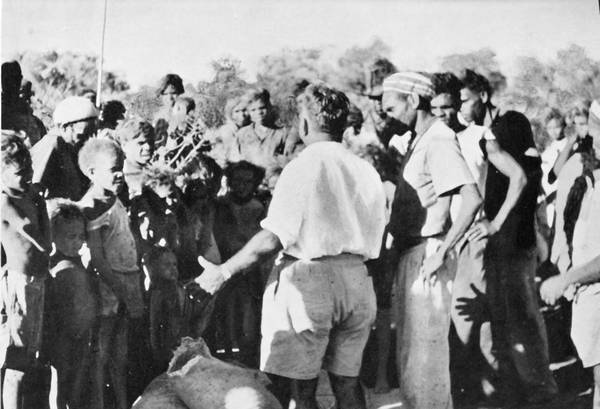
Nicholls was a member of an expedition to the Warburton Ranges which came across some severely malnourished groups with some people too weak to keep up with the group.
Source: William Grayden, Adam and Atoms, Daniels, Perth, 19577
International: UN convention on Indigenous peoples
The International Labour Organisation, one of the United Nations organisations, adopts convention 107, 'Convention Concerning the Protection and Integration of Indigenous and Other Tribal and Semi-Tribal Populations in Independent Countries'.
1958
National rights council born
In Adelaide on the weekend of 15-16 February a new national body is launched - the Federal Council for Aboriginal Advancement.
Federal Council for Aboriginal Advancement formed at Adelaide conference, February 1958
Courtesy Len Fox
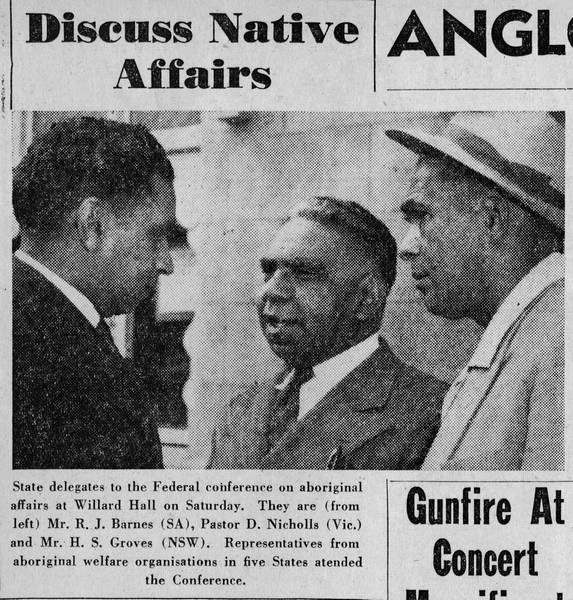
Twenty-six people attended this meeting, which formed the Federal Council for Aboriginal Advancement, including the three Aboriginal delegates and Bill Onus, an Aboriginal observer, representing the Australian Aborigines' League.
Source: The Advertiser, Adelaide, 17 February 1958
Namatjira guilty
Albert Namatjira is found guilty of supplying liquor to a relative who was a ward of the state. The resulting furore draws attention to weaknesses of Northern Territory legislation which drove a wedge between Aboriginal wards and Aboriginal citizens.
1959
Artist Namatjira dies
Albert Namatjira dies, eight months after being charged with supplying alcohol to a ward, reigniting investigations into government approaches to Aboriginal Australians whose citizenship continued to be constrained by state and territory legislation.
Albert Namatjira, 1958
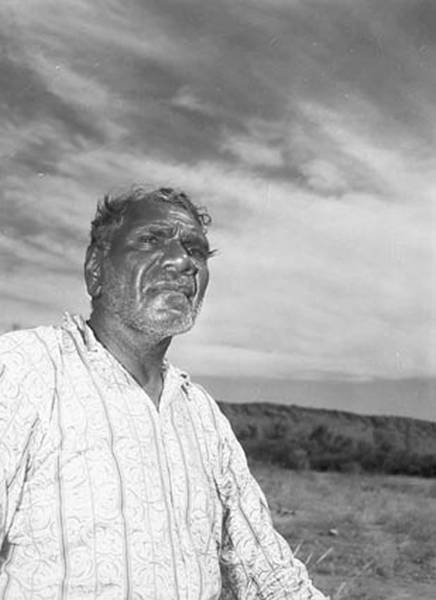
Albert Namatjira, 1958
Source: National Archives of Australia
'Nomads' denied social services
The federal Social Services Act is amended making old age pensions and maternity benefits available to most Aboriginal Australians. The remaining restrictive clause states that such benefits would not be available to people who are 'nomadic' or 'primitive'. These terms are not defined.
396177
- 396138
- 396162
- 396177
- 396192
- 396225
- 794551

